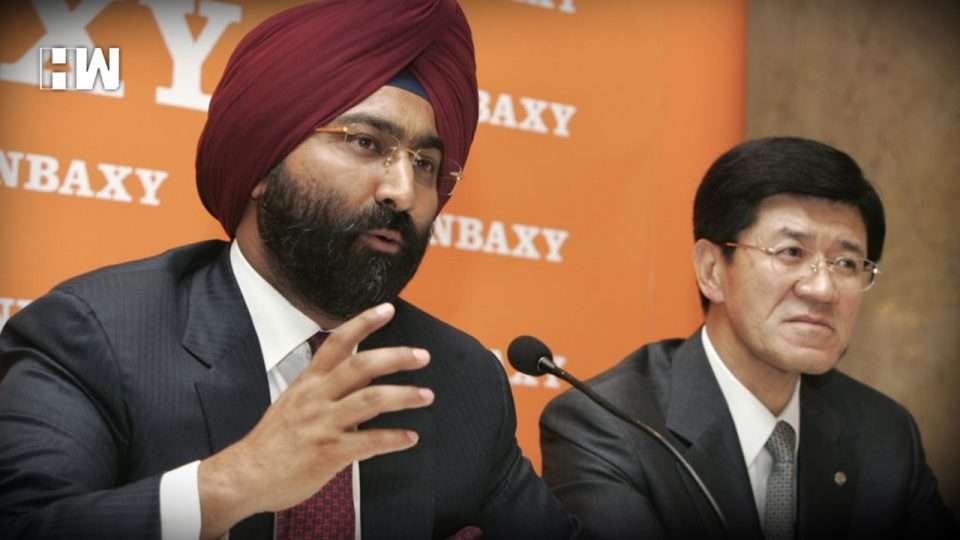New Delhi | The Delhi High Court today directed former promoters of India’s Ranbaxy Laboratories Ltd, Malvinder and Shivinder Singh, to disclose their bank accounts and assets overseas in a case related to execution of the Rs 3,500 crore arbitral award won by Japanese pharma major Daiichi Sankyo.
Justice Rajiv Shakdher also ordered the Singh brothers not to transfer or create any third party in their shareholdings in RHC Holding Pvt Ltd or trademarks. The court said both the brothers will disclose in an affidavit, in a sealed cover, their assets and bank accounts outside India and also the details of art and paintings.
When advocate Anuradha Dutt, appearing for Singh brothers, raised objection to the direction to disclose foreign assets and accounts on the ground of lack of jurisdiction, the court said it was just asking to give the details and the jurisdiction issue will be dealt with later.
The order came on the plea by Daiichi, through senior advocate Arvind Nigam, seeking a direction to the Singh brothers to disclose their assets outside India and for their personal appearance on the ground that they were taking contradictory stands in their affidavits.
The court was also informed that a chartered accountant, who was appointed local commissioner in the matter, had expressed difficulty in selling the unencumbered shares of the respondents in listed companies. Justice Shakdher directed that the shares be sold by the local commissioner through his demat account linked to his saving bank account.
It said as the transactions will be carried by him at the behest of the high court’s direction, it should not be reflected in his income tax record. The court listed the matter for further hearing on September 25.
The chartered accountant had earlier submitted a report giving the list of shares of the Singh brothers, their family members and firms including RHC Holding Pvt Ltd and Oscar Investments Ltd, in listed companies.
The court had directed the local commissioner to sell the entire lot of unencumbered shares of the respondents, other than Malvinder Singh in listed companies. The high court had earlier also ordered the attachment of all unencumbered assets of RHC Holdings Pvt Ltd and Oscar Investments Pvt Ltd.
A Singapore tribunal had in April 2016 passed the award in Daiichi’s favour holding that the brothers had concealed information that their company was facing probe by the US Food and Drug Administration and the Department of Justice while selling its shares.
The high court on January 31 had upheld the international arbitral award passed in the favour of Daiichi and paved the way for enforcement of the 2016 tribunal award against the brothers who had sold their shares in Ranbaxy to Daiichi in 2008 for Rs 9,576.1 crore. Sun Pharmaceuticals Ltd had later acquired the company from Daiichi.
It had, however, said that the award was not enforceable against five minors, who were also shareholders in Ranbaxy, saying they cannot be held guilty of having perpetuated a fraud either themselves or through any agent.
Daiichi had moved the high court here seeking direction to the brothers to take steps towards paying its Rs 3,500 crore arbitration award, including depositing the amount. It had also urged the court to attach their assets, which may be used to recover the award.
On February 16, the Supreme Court had dismissed Singh brothers’ appeal against the high court verdict upholding the international arbitral award. Singh brothers’ counsel had argued that the award granted consequential damages which were beyond the jurisdiction of the arbitral tribunal and the award cannot be enforced under the provision of the Arbitration Act.
They had claimed that Daiichi was fully aware of all facts and still chose to retain the Ranbaxy shares, instead of terminating the agreement and returning them.
As an independent media platform, we do not take advertisements from governments and corporate houses. It is you, our readers, who have supported us on our journey to do honest and unbiased journalism. Please contribute, so that we can continue to do the same in future.

